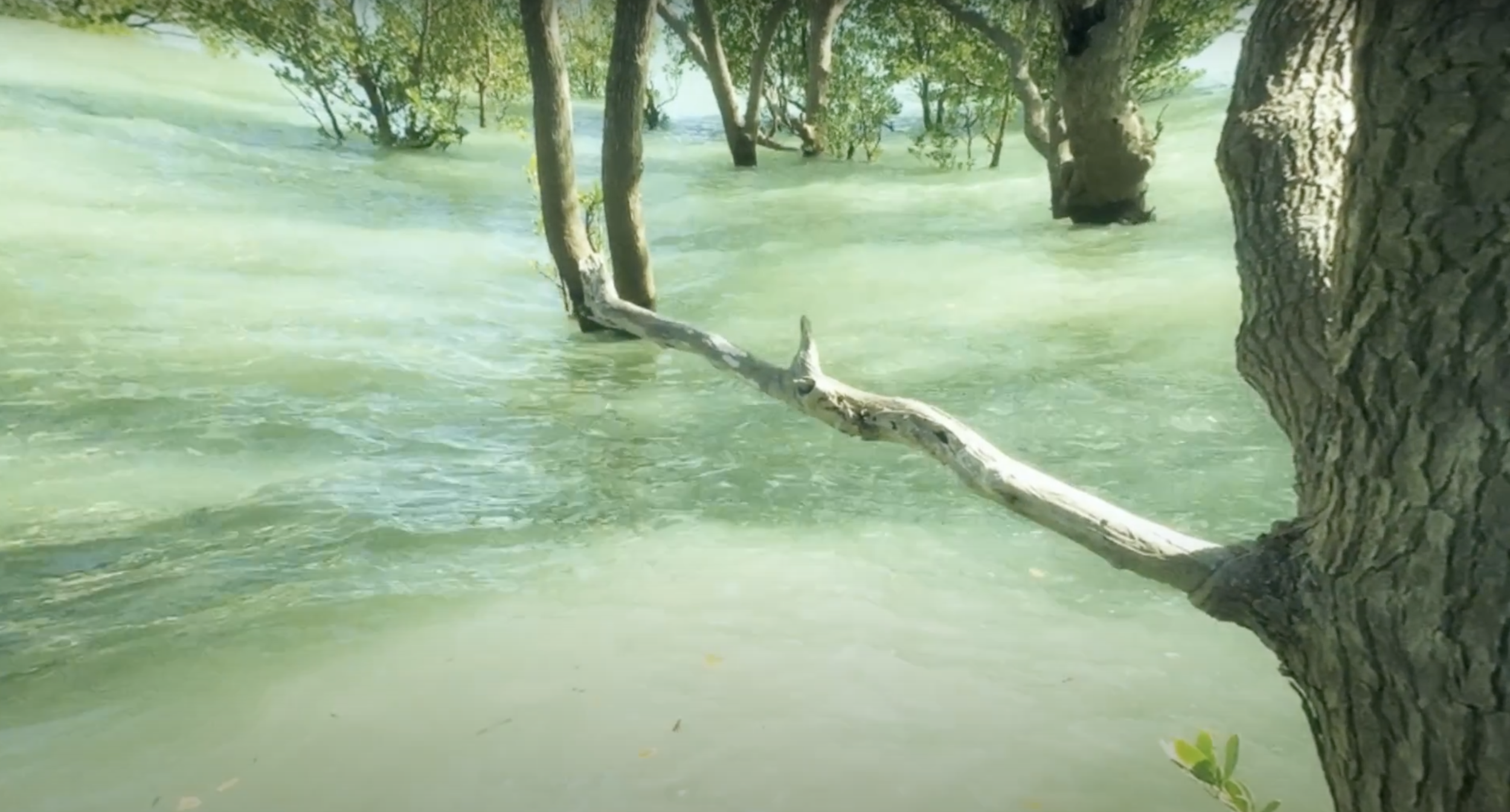
Karrabing Film Collective
The Karrabing Film Collective is a grassroots Indigenous based media group. Filmmaking provides a means of self-organization and social analysis for the Karrabing. Screenings and publications allow the Karrabing to develop a local artistic languages and forms and allow audiences to understand new forms of collective Indigenous agency.
Their medium is a form of survivance – a refusal to relinquish their country and a means of investigating contemporary social conditions of inequality. The films represent their lives, create bonds with their land, and intervene in global images of Indigeneity. Scroll down for more details about Karrabing Film Collective’s film and art projects.
Scroll down for a history of exhibitions, screenings and awards.

Film and media projects
In the not so distant future, Europeans can no longer survive for long periods outdoors in a land and seascape poisoned by capitalism, but Indigenous people seem able to. A young Indigenous man, Aiden, taken away when he was just a baby to be a part of a medical experiment to save the white race, is released into the world of his family. As he travels with his father and brother across the landscape he confronts two possible futures and pasts.
Premiere: Melbourne International Film Festival, 2018
Commissioned by the Wexner Center’s Cinetracts Program, The Road documents and expands upon the group’s memorable and eventful bushwhacking sessions to clear a road to a distant, remote beach as part of the Karrabing KARA and KMART projects.
Premiere: Wexner Center, Cinetracts, 2020, curated by Chris Stults.
Day in the Life (2020) charts an ordinary day in a small rural Indigenous community in which nothing quite works and the authoritative hand of the government is a always constant, shadowy presence over the community. The film comprises five satirically titled vignettes—“Breakfast,” “Play Break,” “Lunch Run,” “Cocktail Hour,” “Takeout Dinner”—illustrating the ways in which the community’s everyday lives are shaped by external influences and constraints and by their insistence on going forward with the ancestors."In the work, the perspectives of the Karrabing cast are always central, creating an empathetic viewing experience that flips mainstream assumptions about Aboriginal communities on their head." Matariki Williams, Art in America.Premiere: International Film Festival Rotterdam, 2020, with support from “Artists in Cinema” Commission & Projections, Tyneside Cinema CommissionAwards: Special Mention, Film Victoria Erwin Rado Award for Best Australian Short Film, Melbourne International Film Festival, 2020.
2021, in production
A new film commission and cross-artforms project aimed at enhancing ancestral Emmi narratives about the southern coastal region of the Anson Bay (Northern Territories, Australia), and specifically about the ecologically fragile Cape Ford region.
2020, online project
Produced for The Art Gallery of New South Wales’ online exhibition, Medium Earth. A powerful manifesto celebrating the ‘smooth and rough’ practices that keep Karrabing connected to their ancestors and obligated to their lands by practices that enhance their own lands by enhancing their relations to each other and the more than human world.
2018, 26’29’’
In the not so distant future, Europeans will no longer be able to survive for long periods outdoors in a land and seascape poisoned by capitalism, but Indigenous people seem able to.
2020, 2’26’’
Produced for Dazibao, Montréal. A serious, sometimes humorous, reflection on Karrabing understandings of the ancestral present.
2017, 31’10’’
During WWII, the Australian government tried to remove a group of Karrabing ancestors from their lands, but they refused to leave.
2017, 29’17’’
Two plot lines meet in a dramatic final encounter. An Indigenous man weaving through bureaucratic red tape to get to a mortuary service on his ancestral land. A fight between a husband consumed by jealousy and his wife’s brother, who excludes him from community ceremonies.
2016, 28.53’’
Across a series of increasingly surreal flashbacks, an extended Indigenous family argues about what caused their boat’s motor to breakdown and leave them stranded.
2015, 35’02’’
Teenaged boys fall into a trap – presumably set to get them jailed for a minor offence – and have tricks played on them by ancestral spirits when they hide out in a toxic mangrove to evade this fate.
2014, 33’55’’
A thoughtful yet humorous drama about the difficulties Indigenous communities have living within the strictures of modern white culture while maintaining a sense of their own traditions and relationship to the land.
2012, 14’01’’
In the Northern Territory of Australia, an extended Indigenous family attempts to track down a missing family member so as not to lose their government housing.












